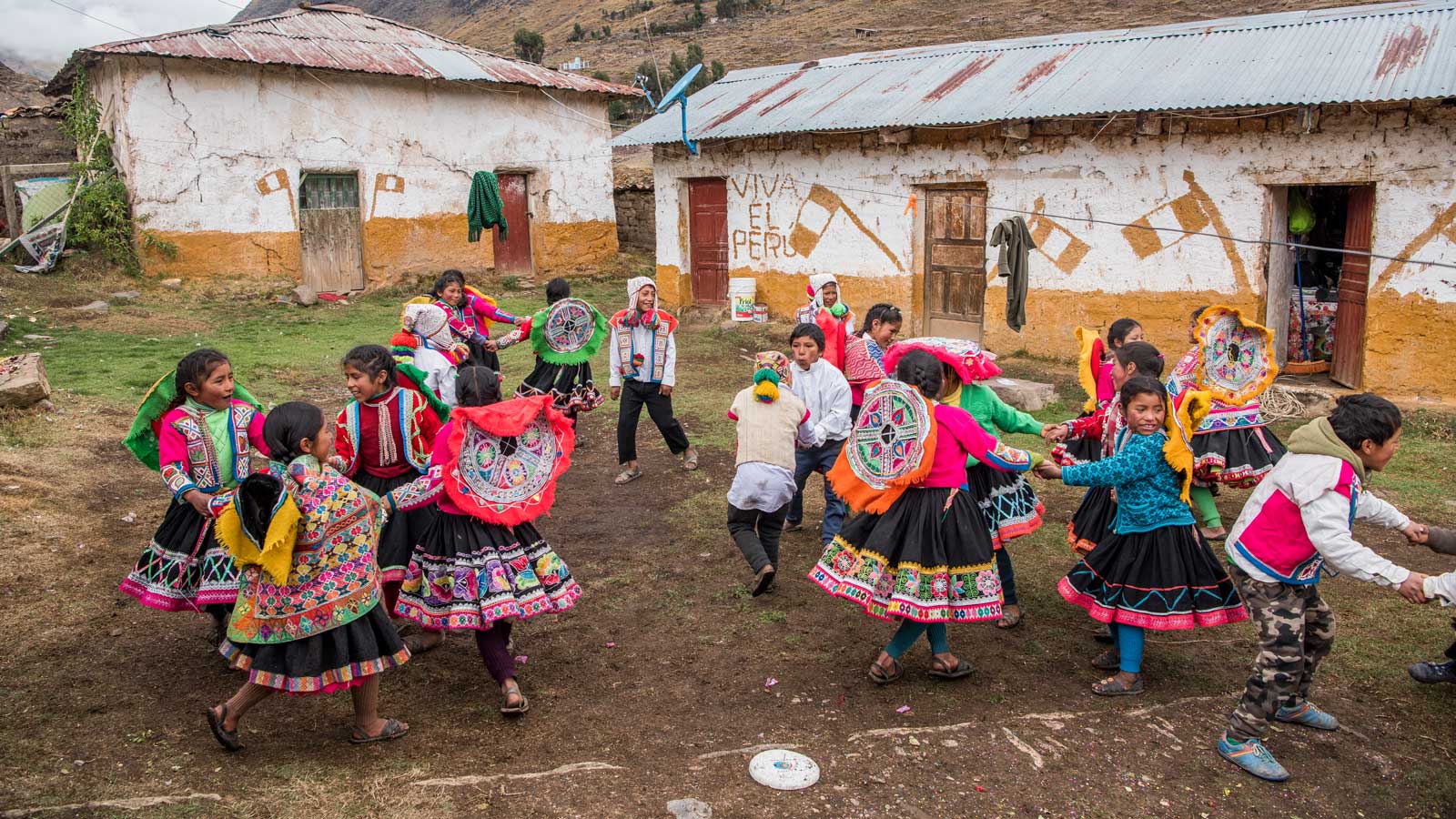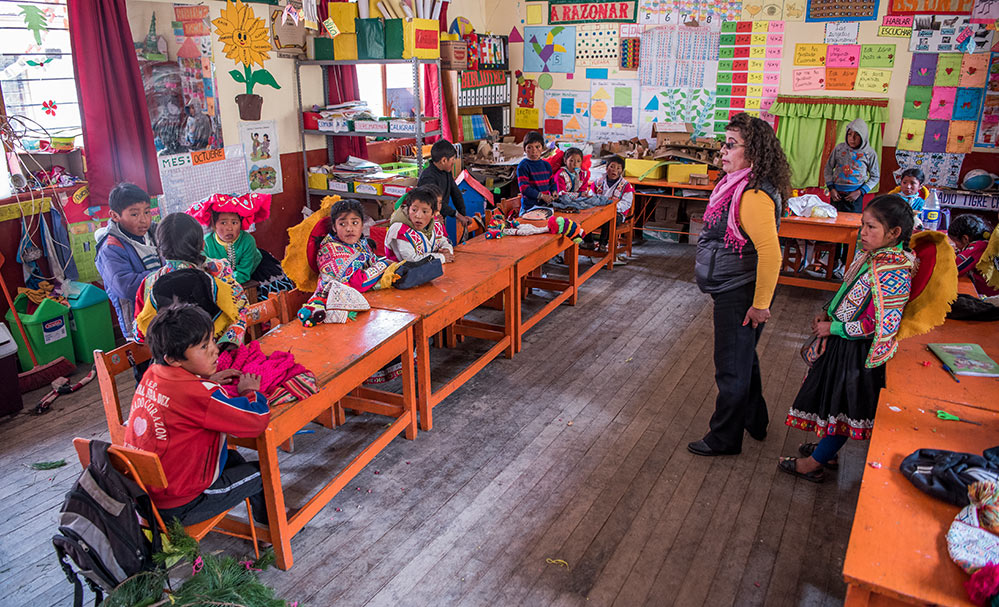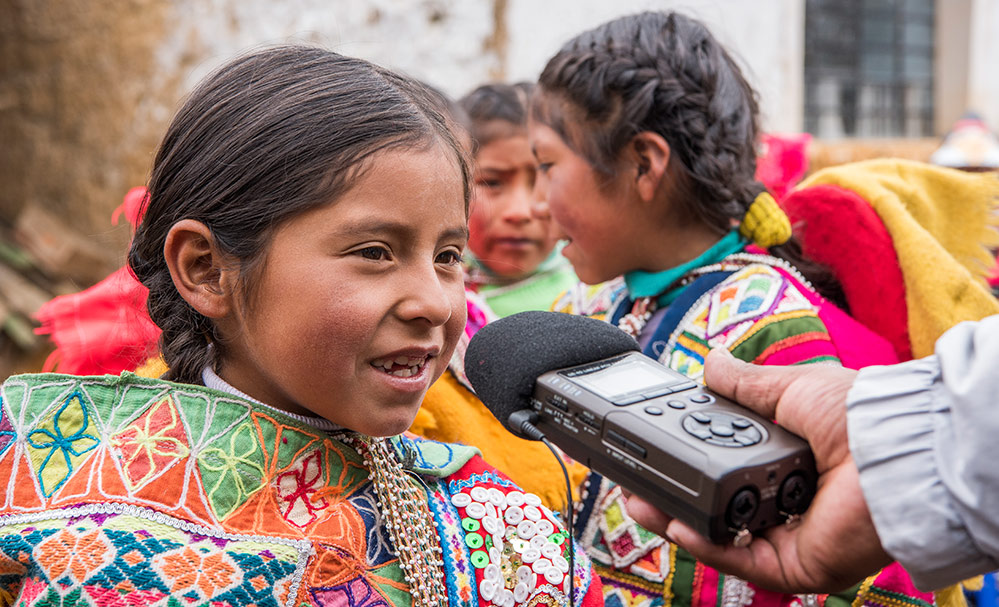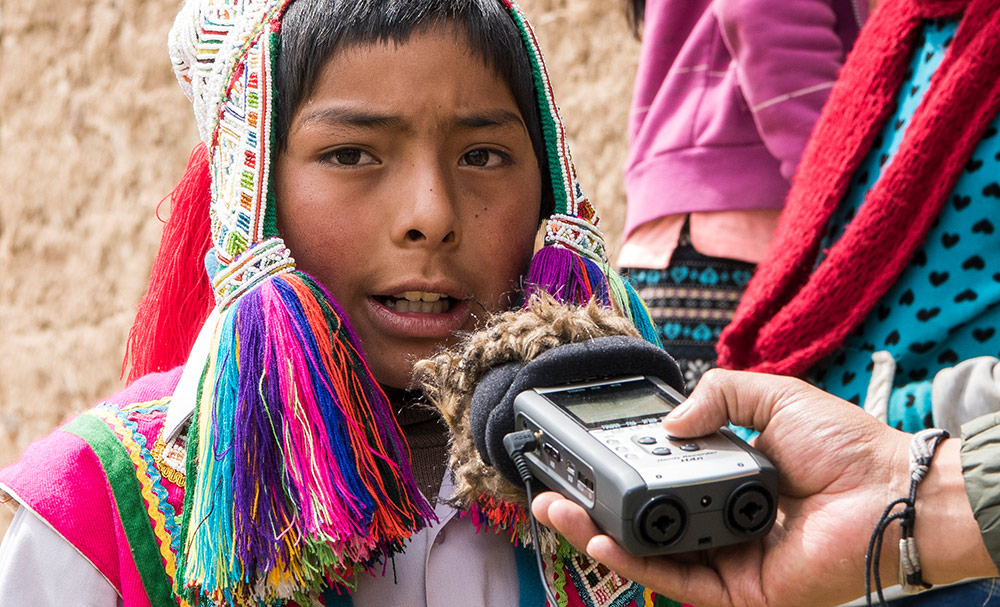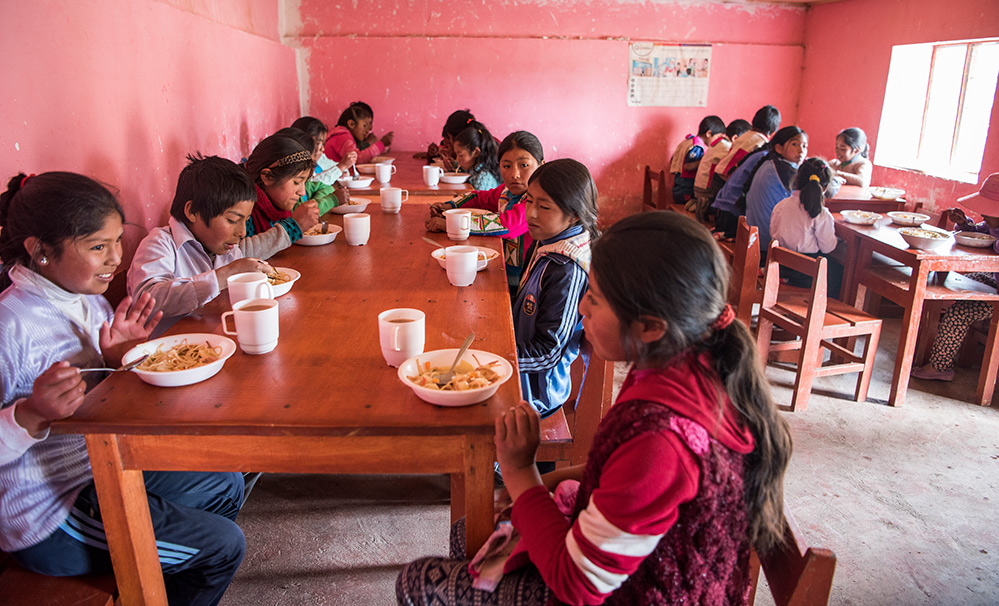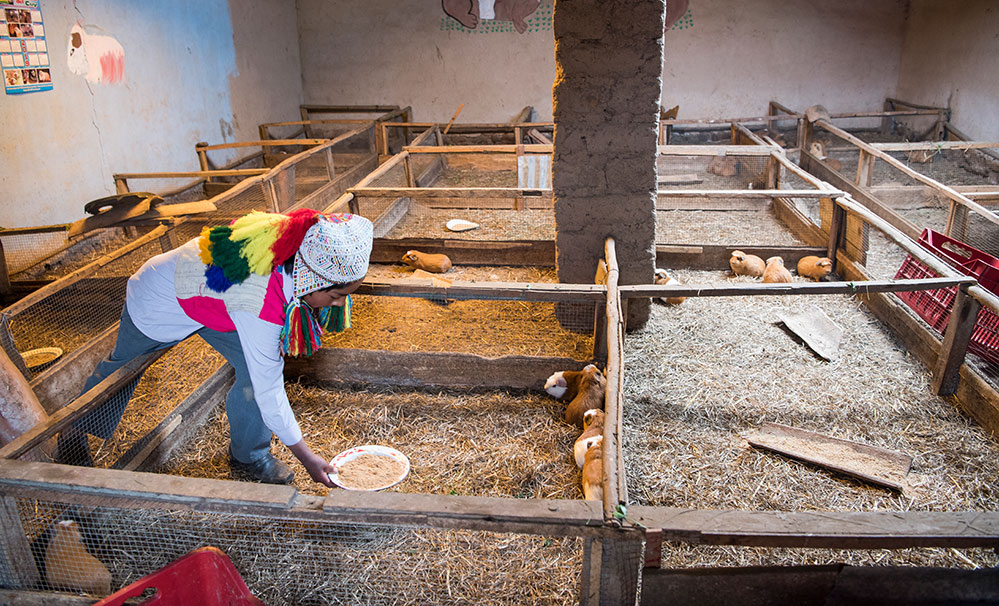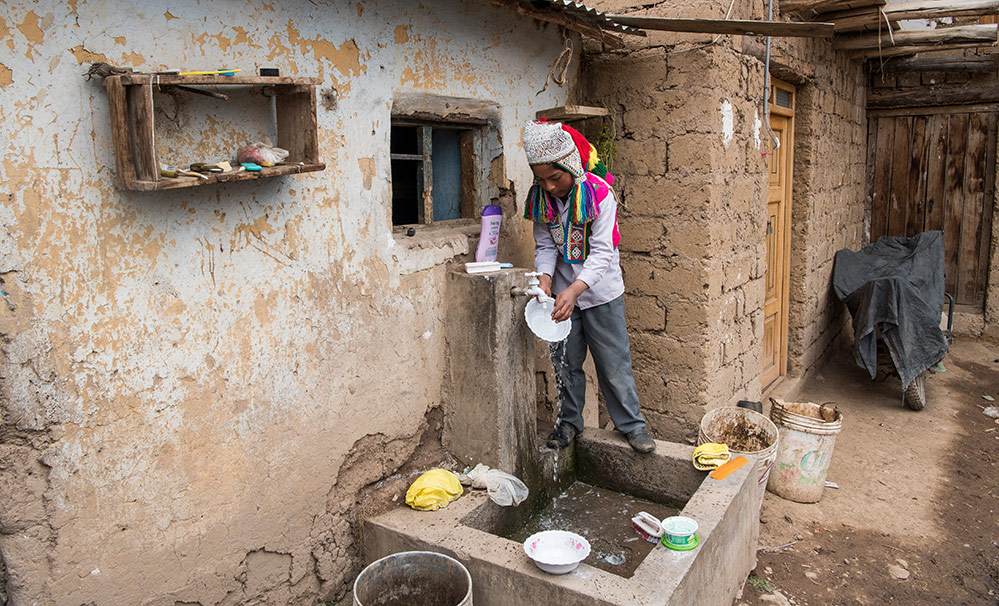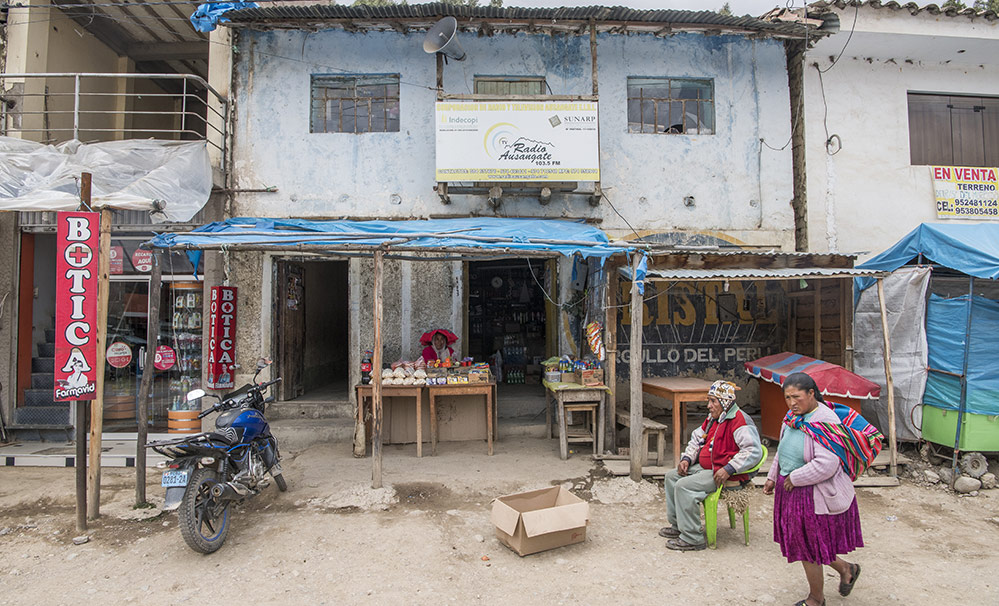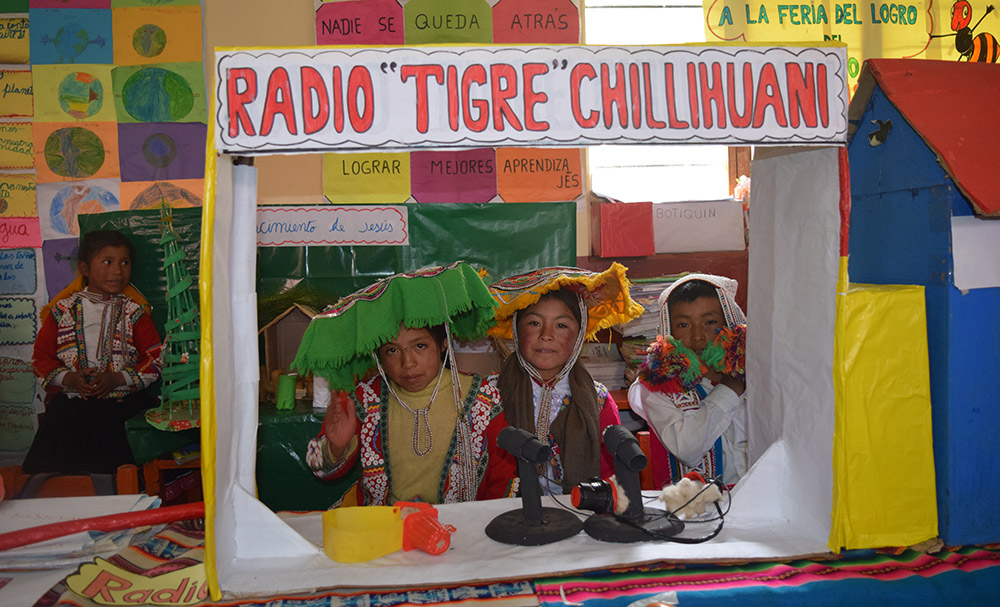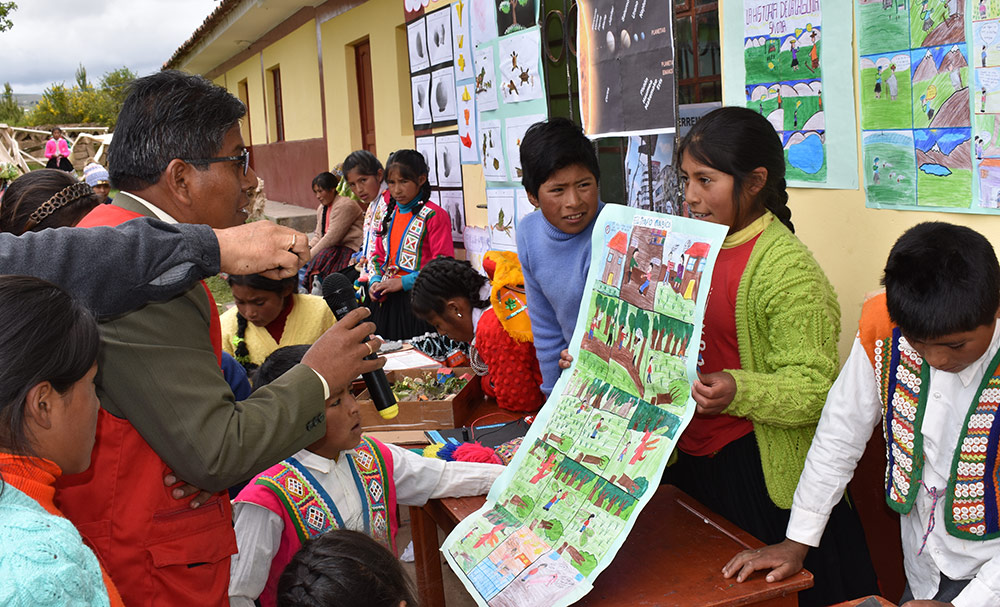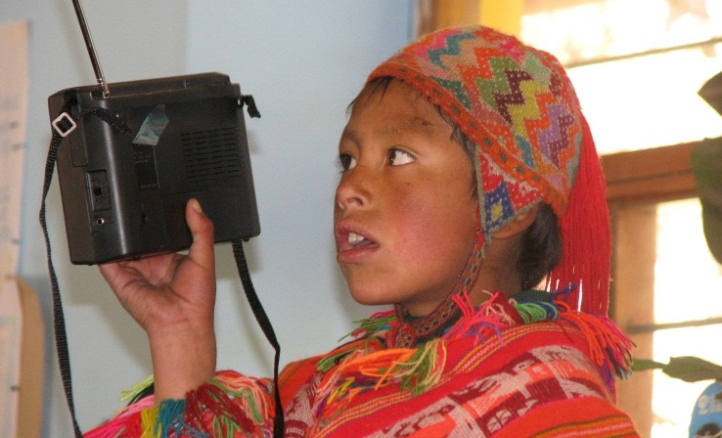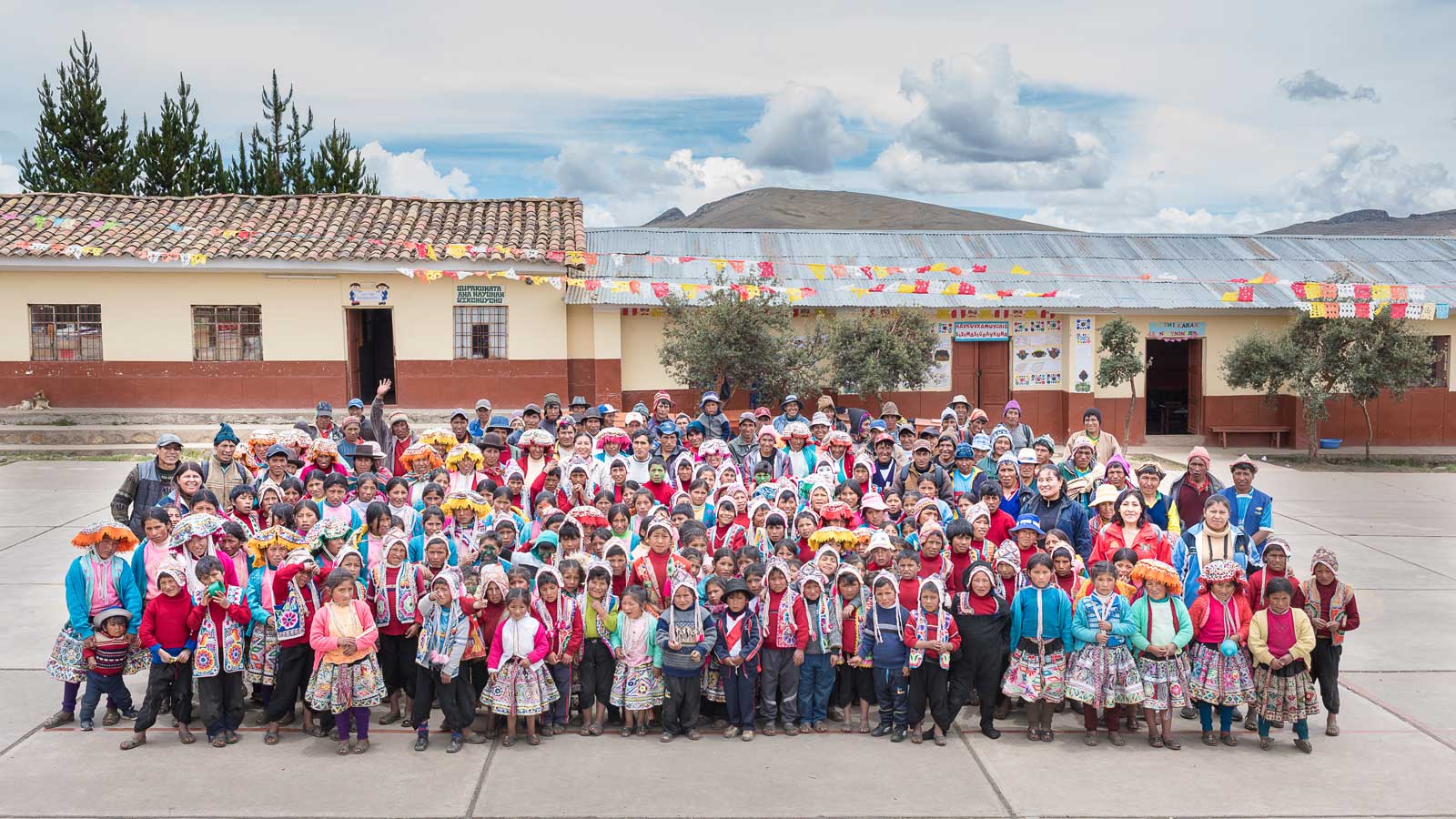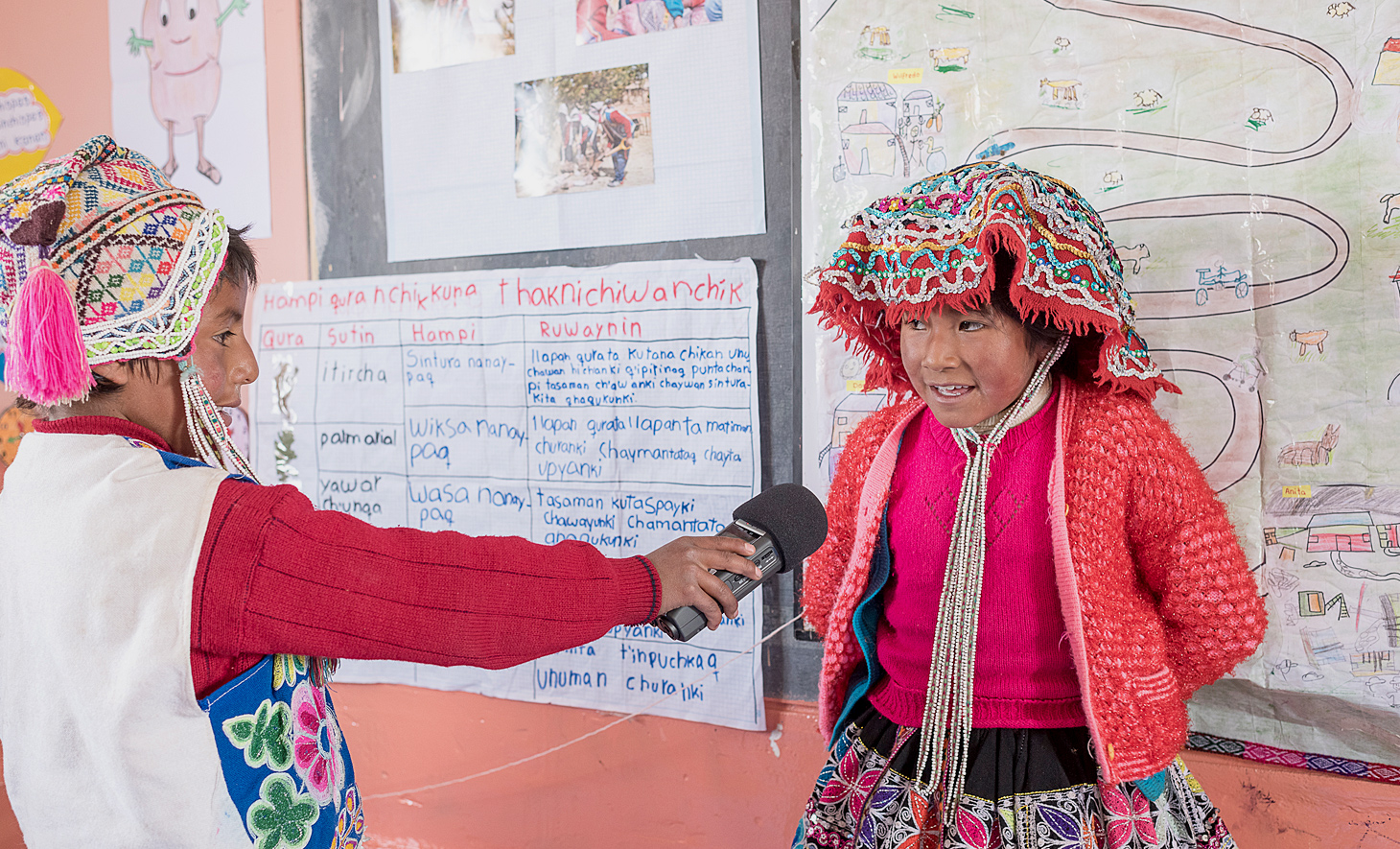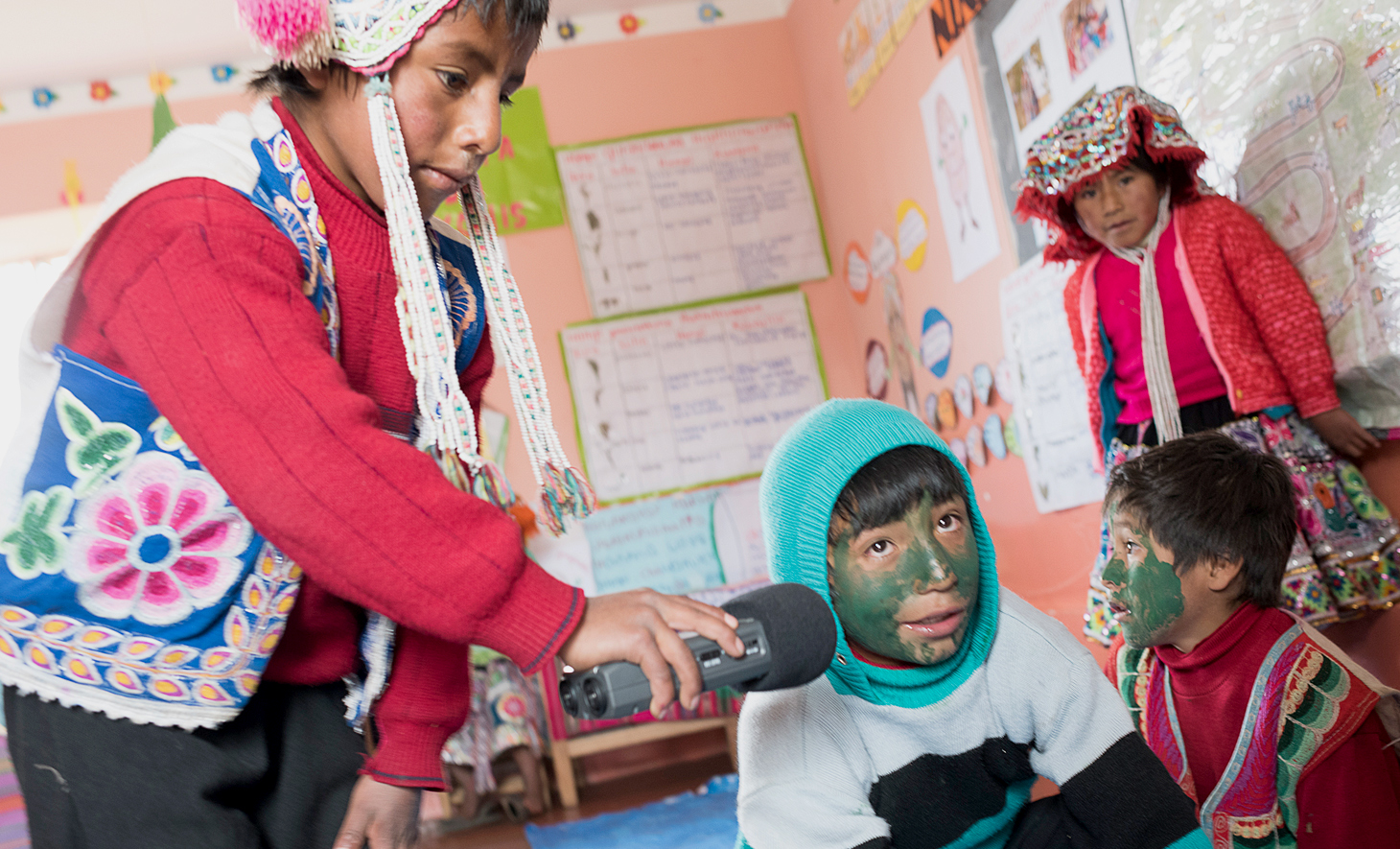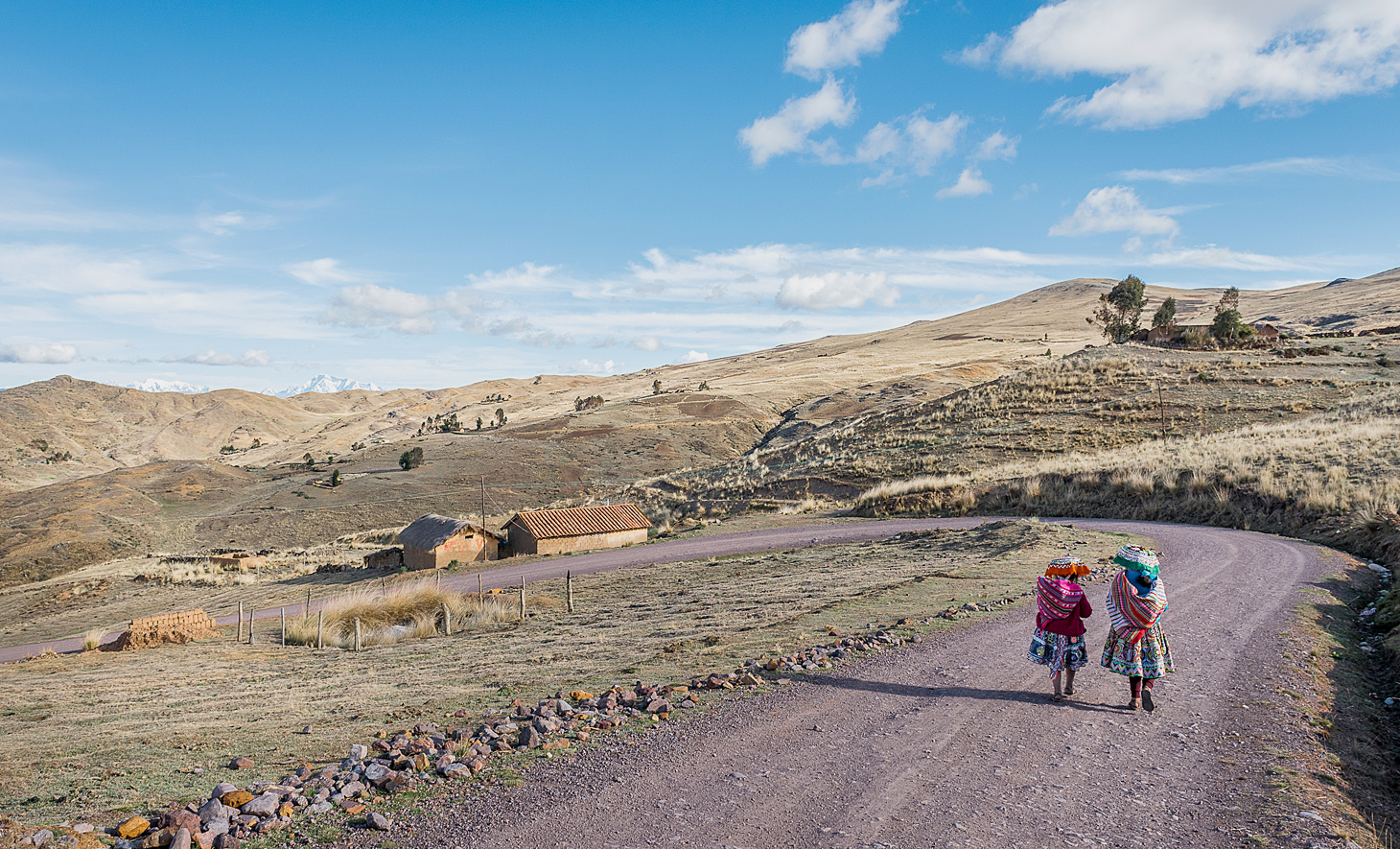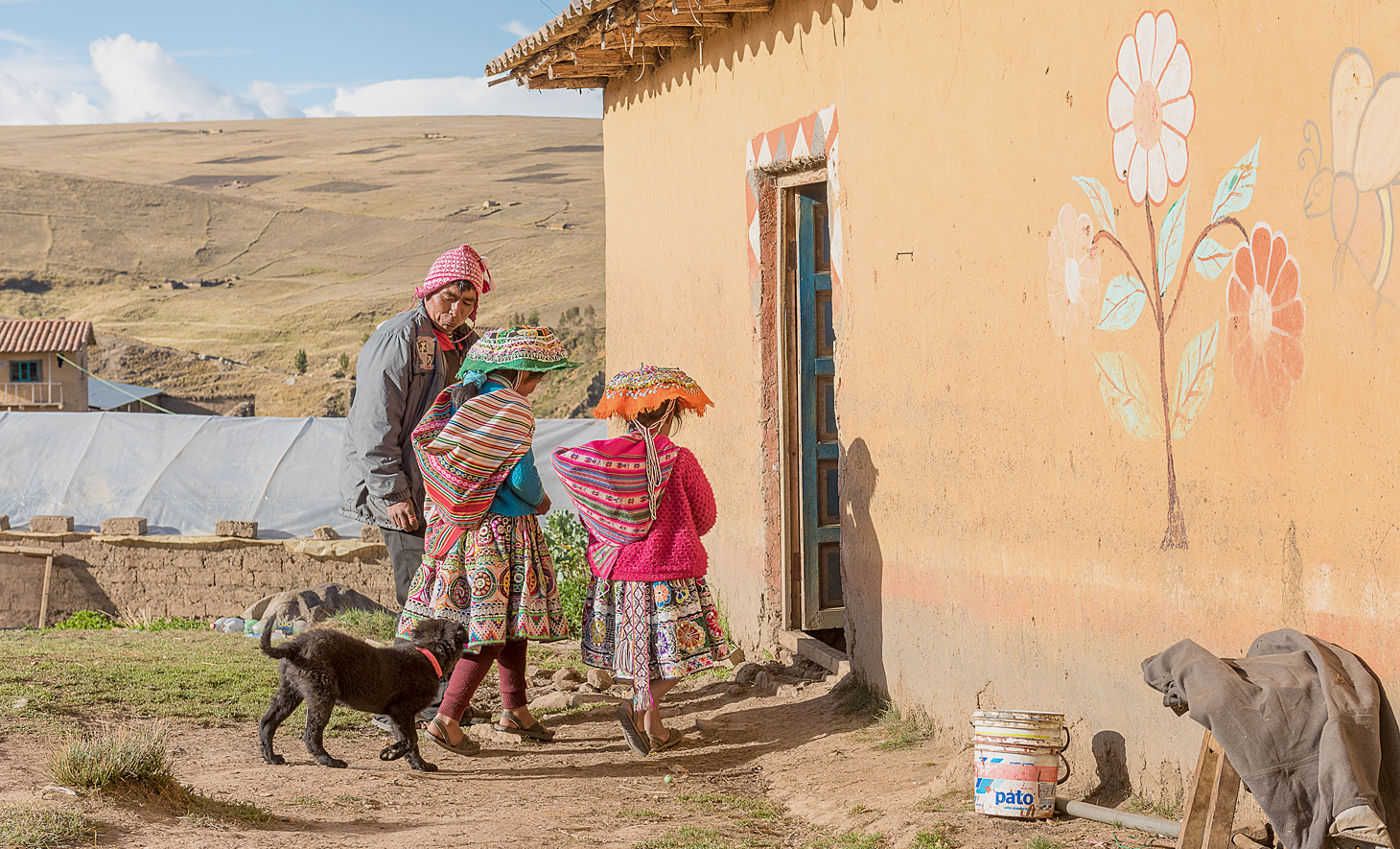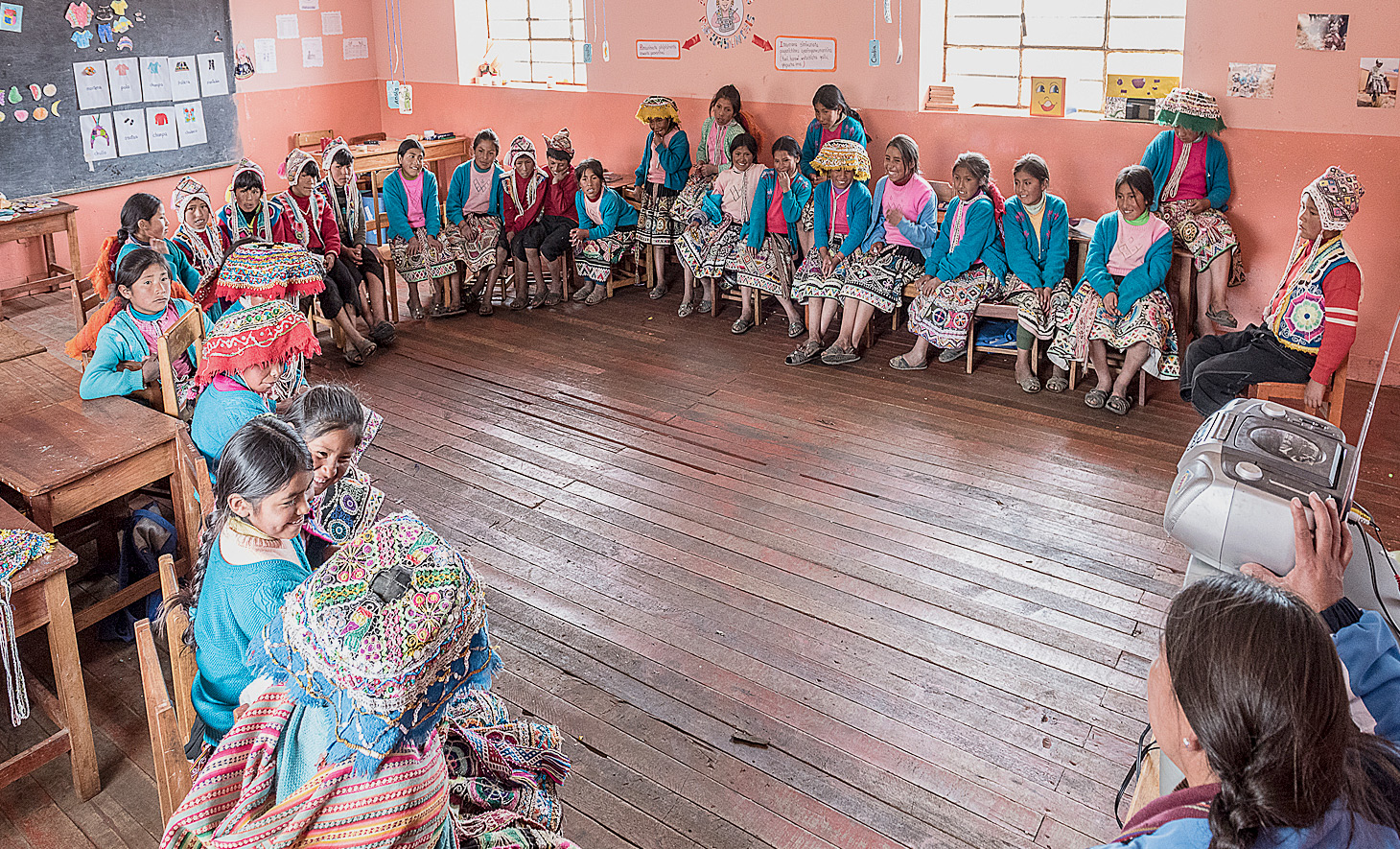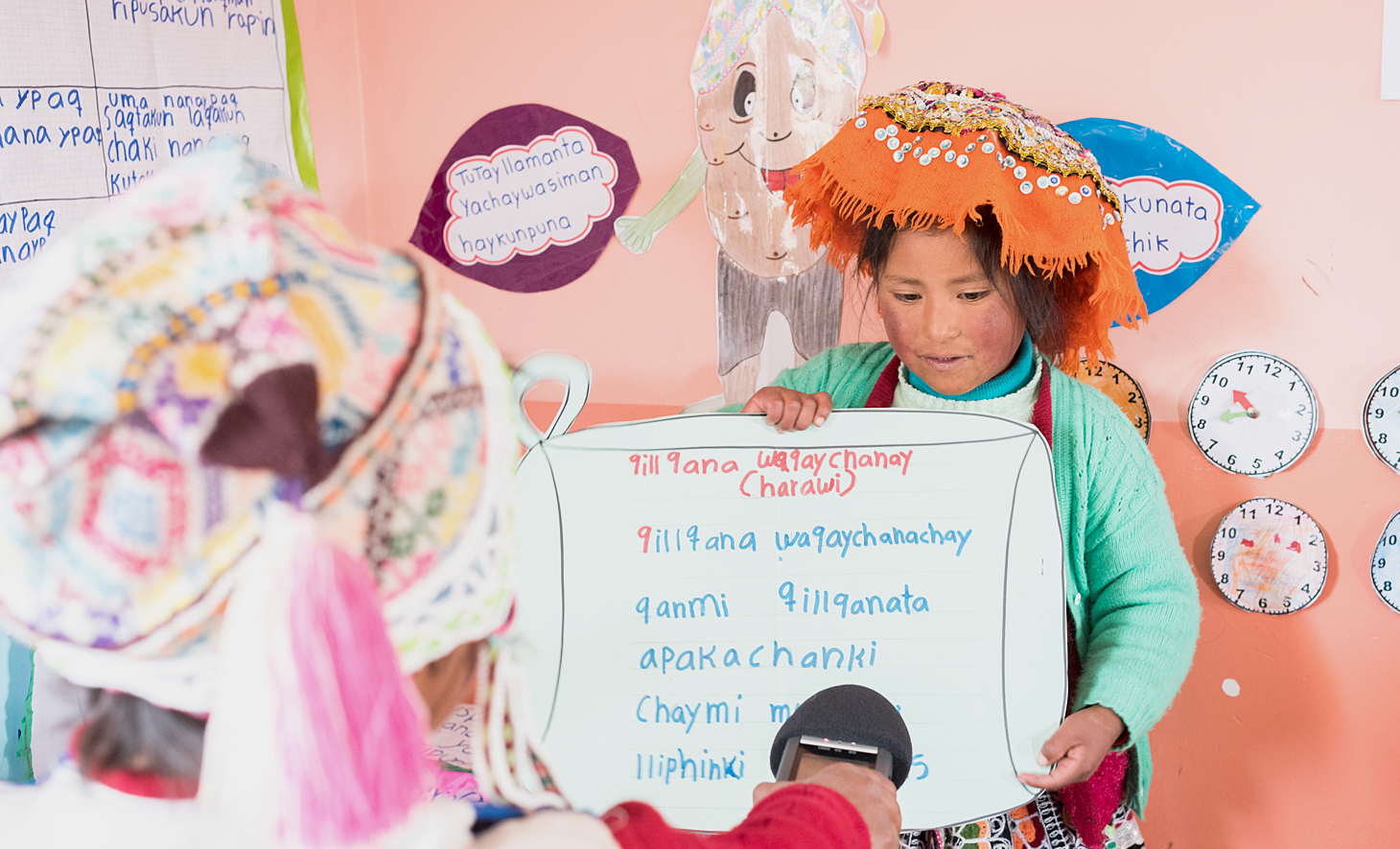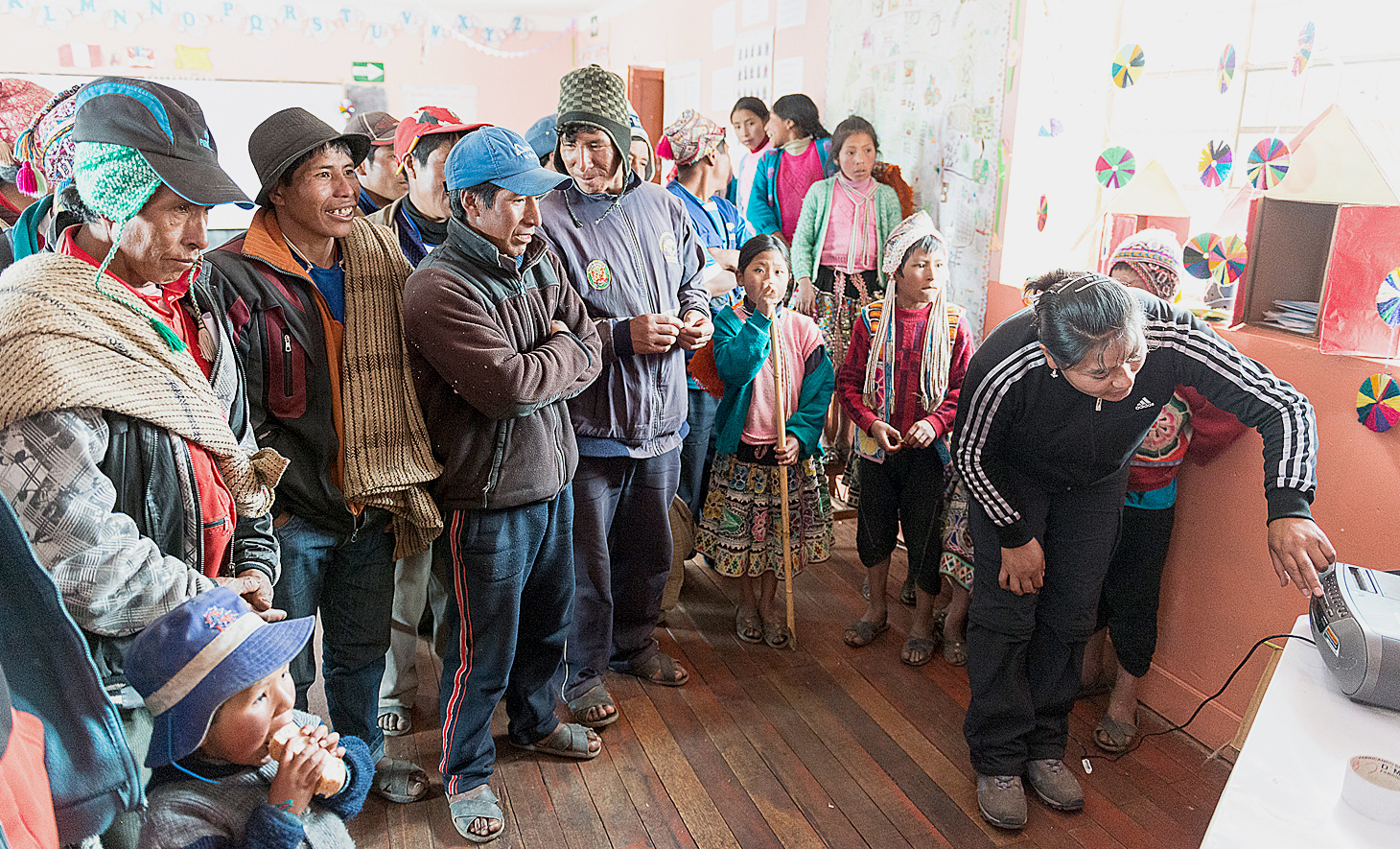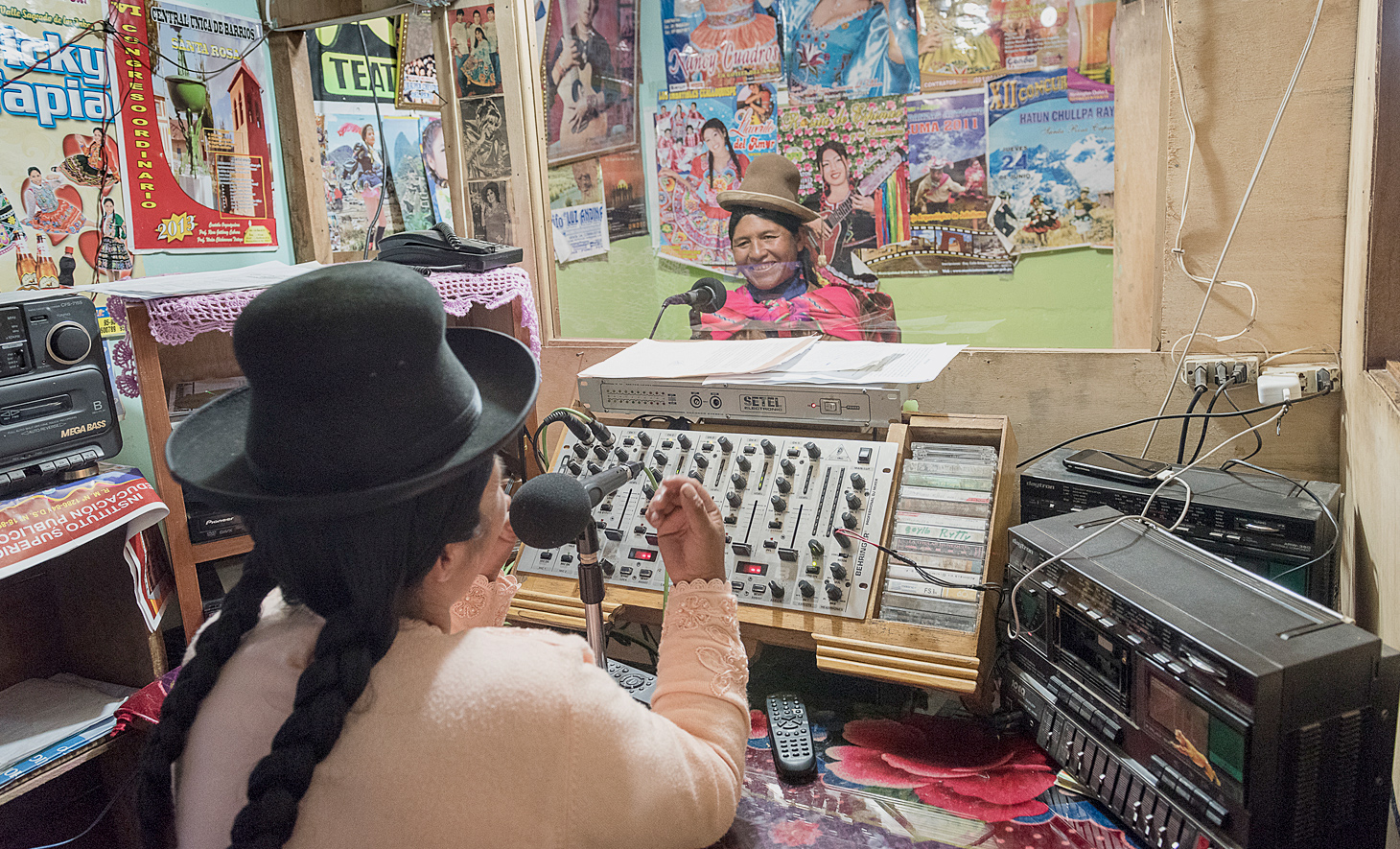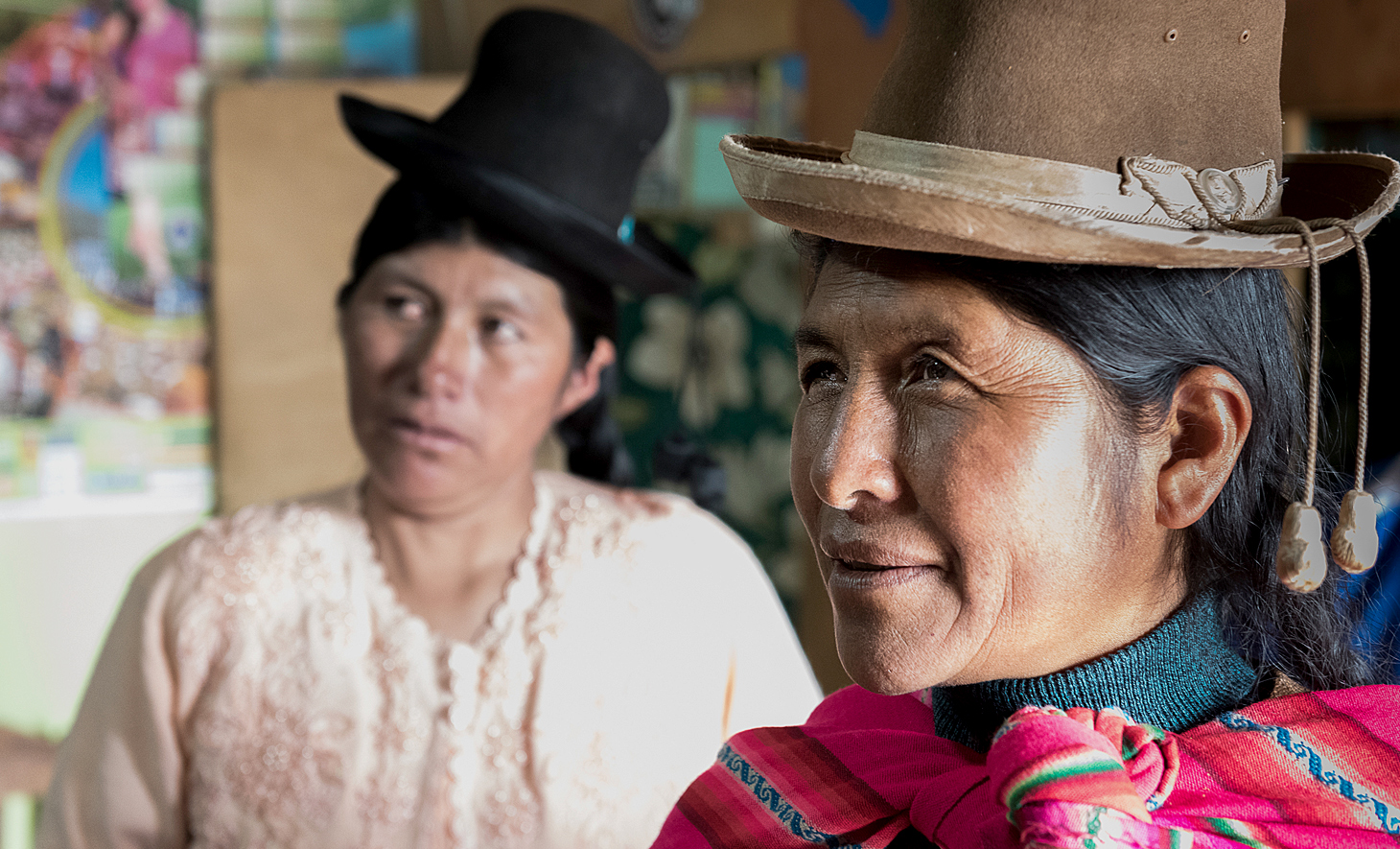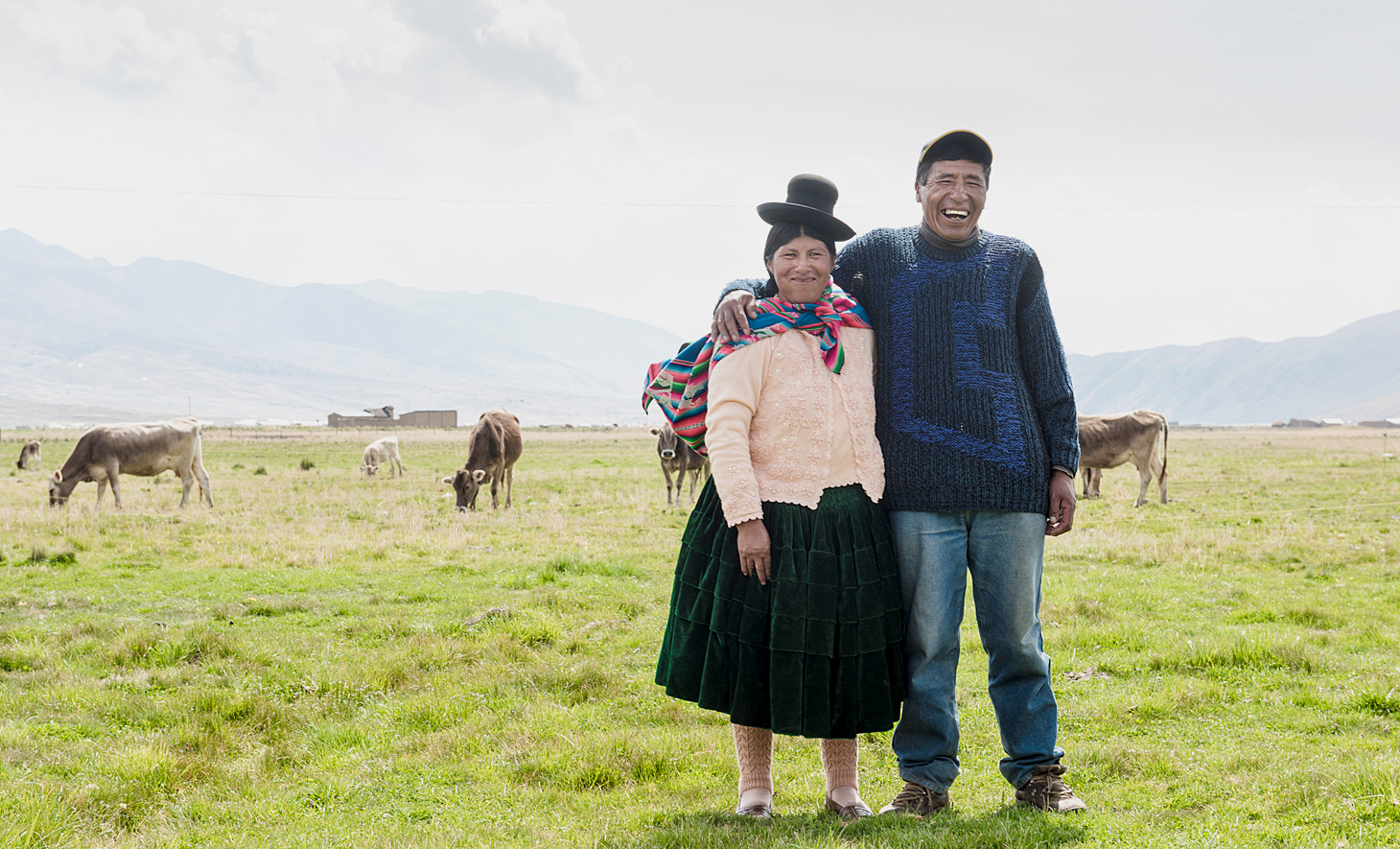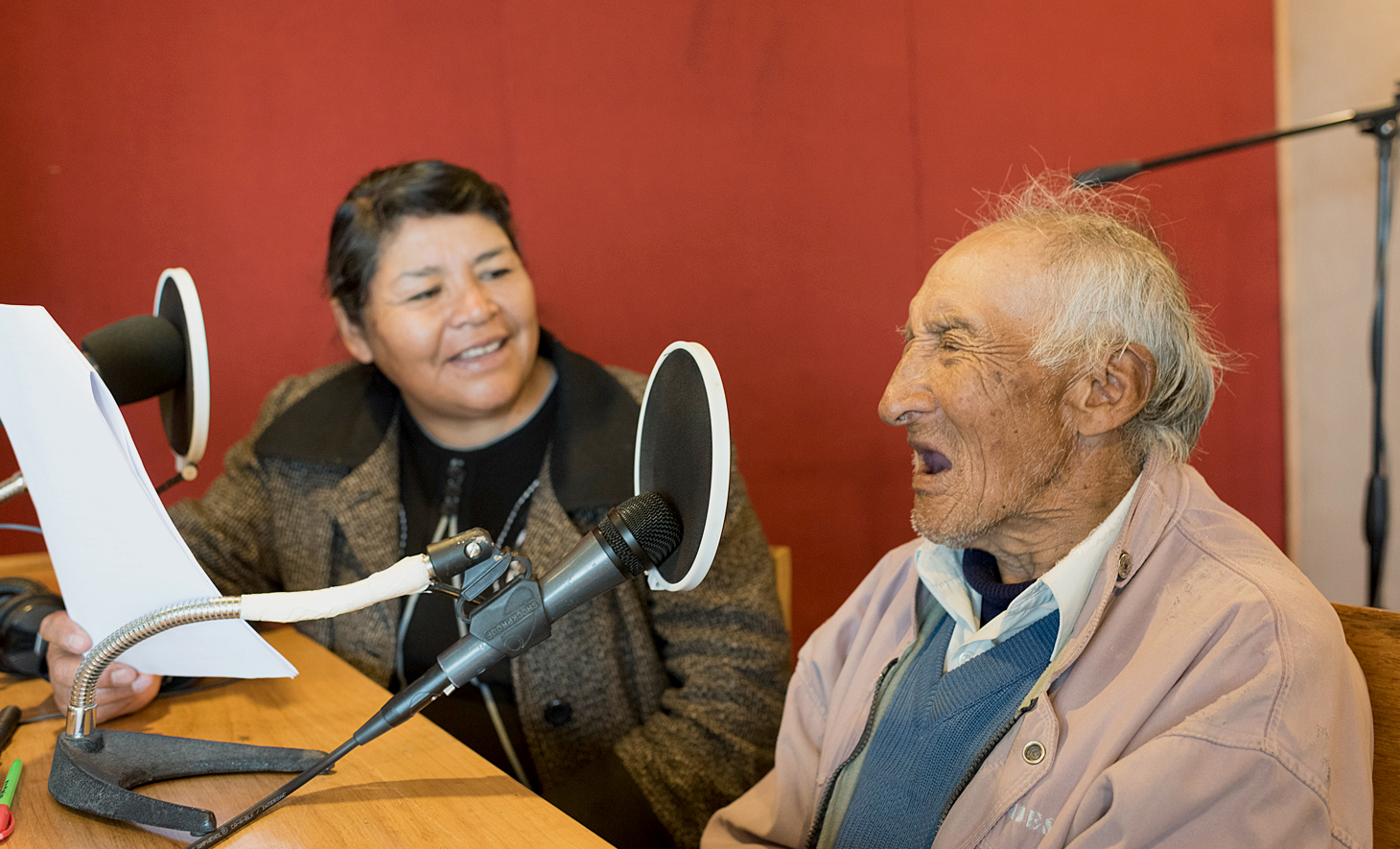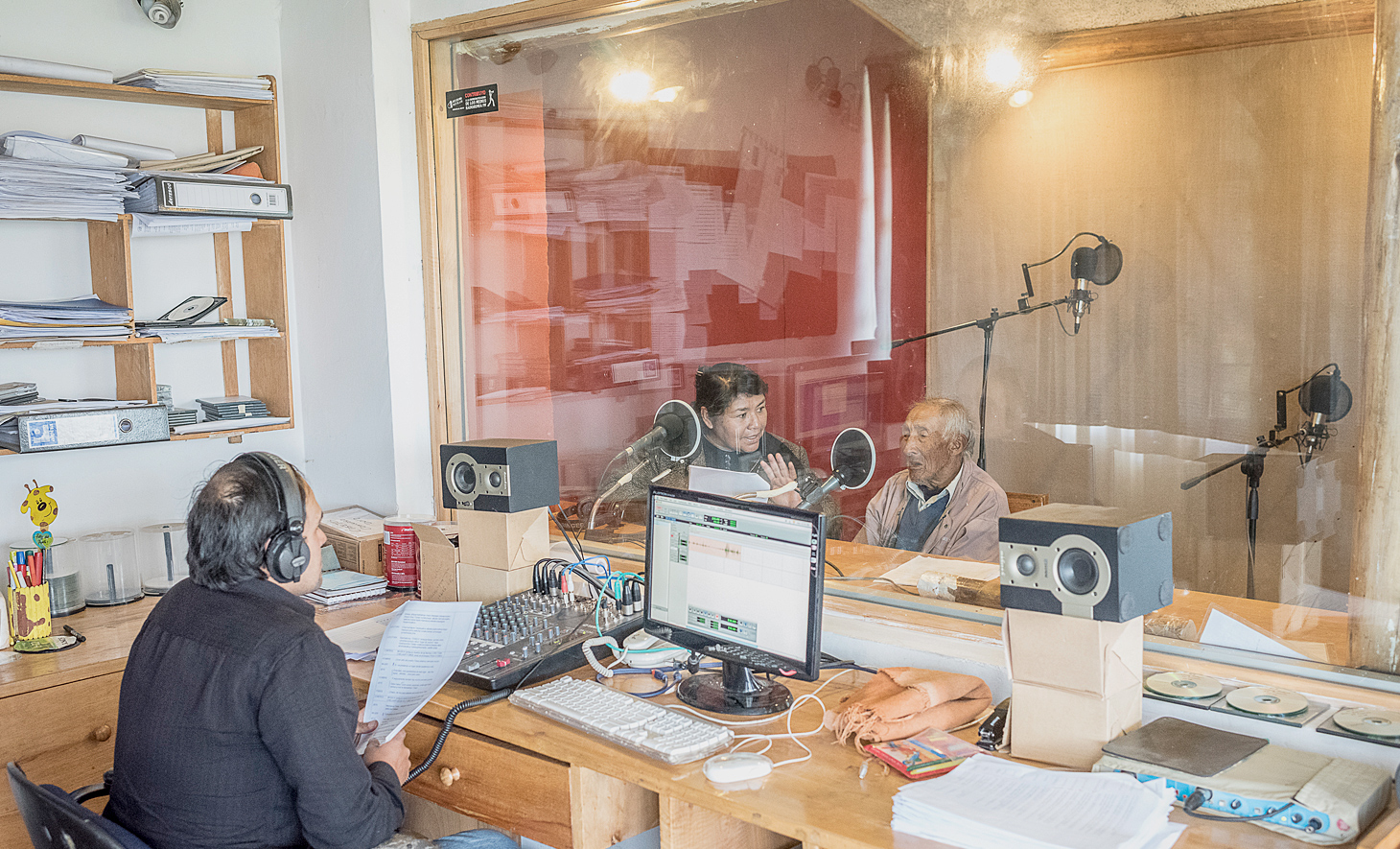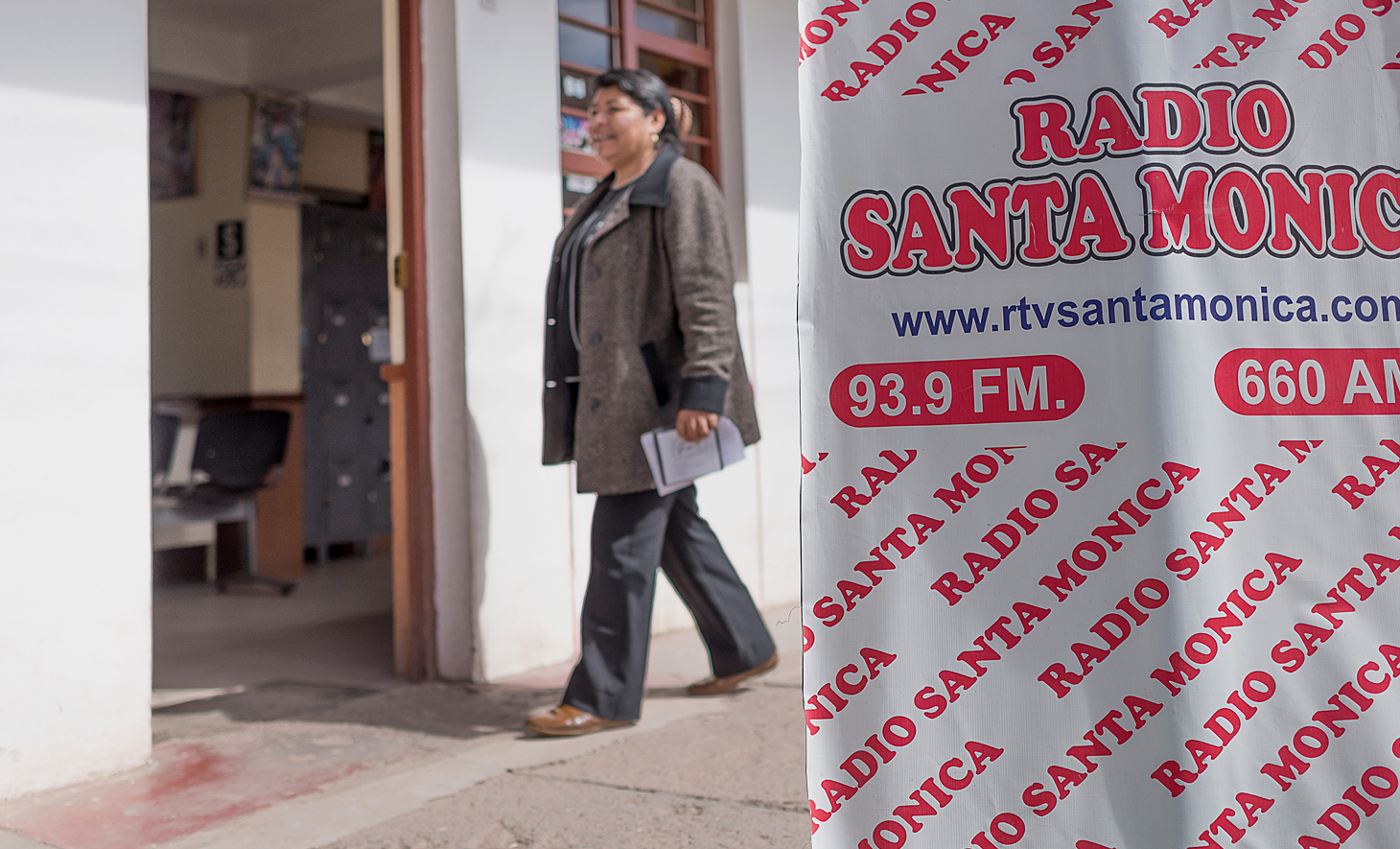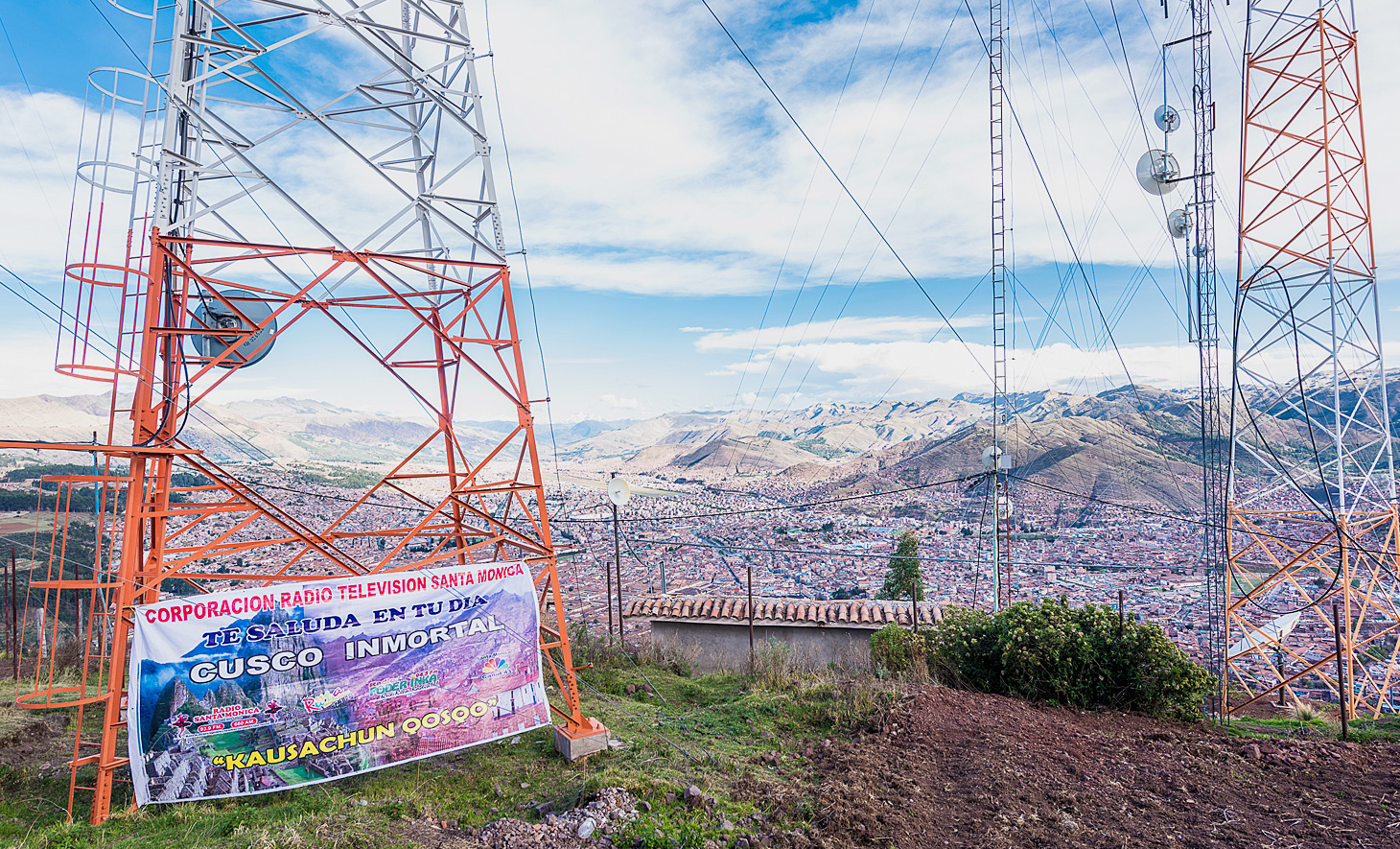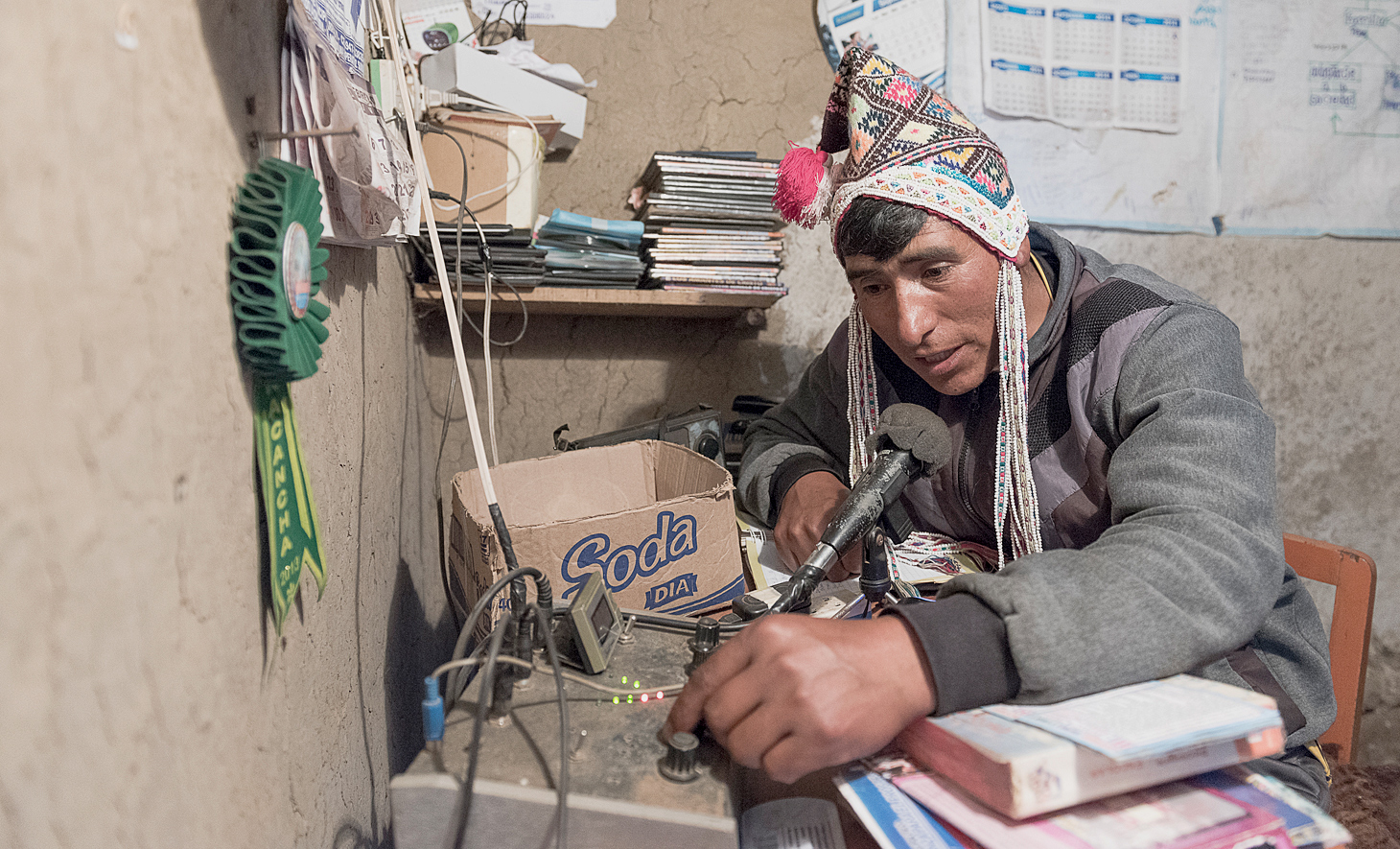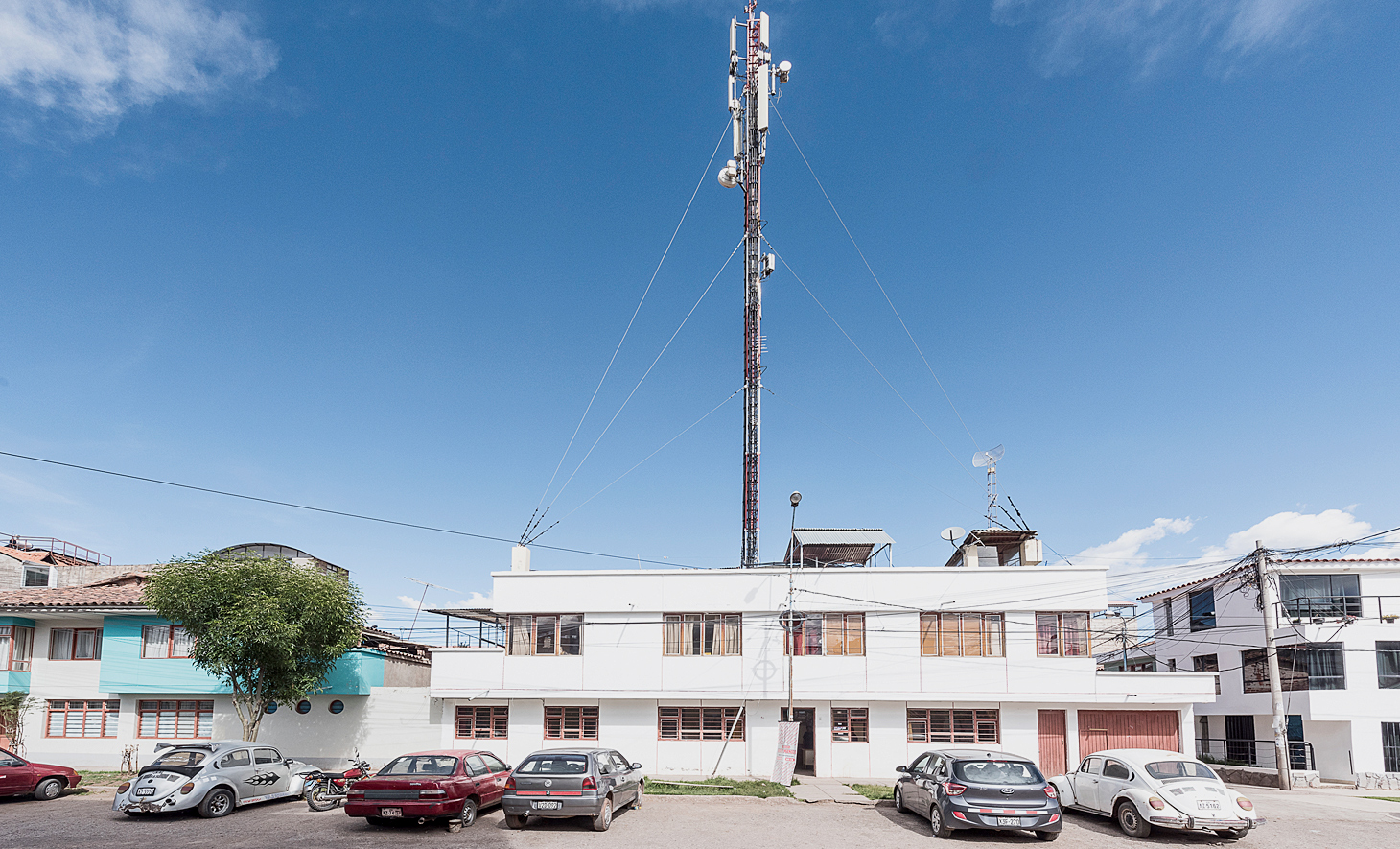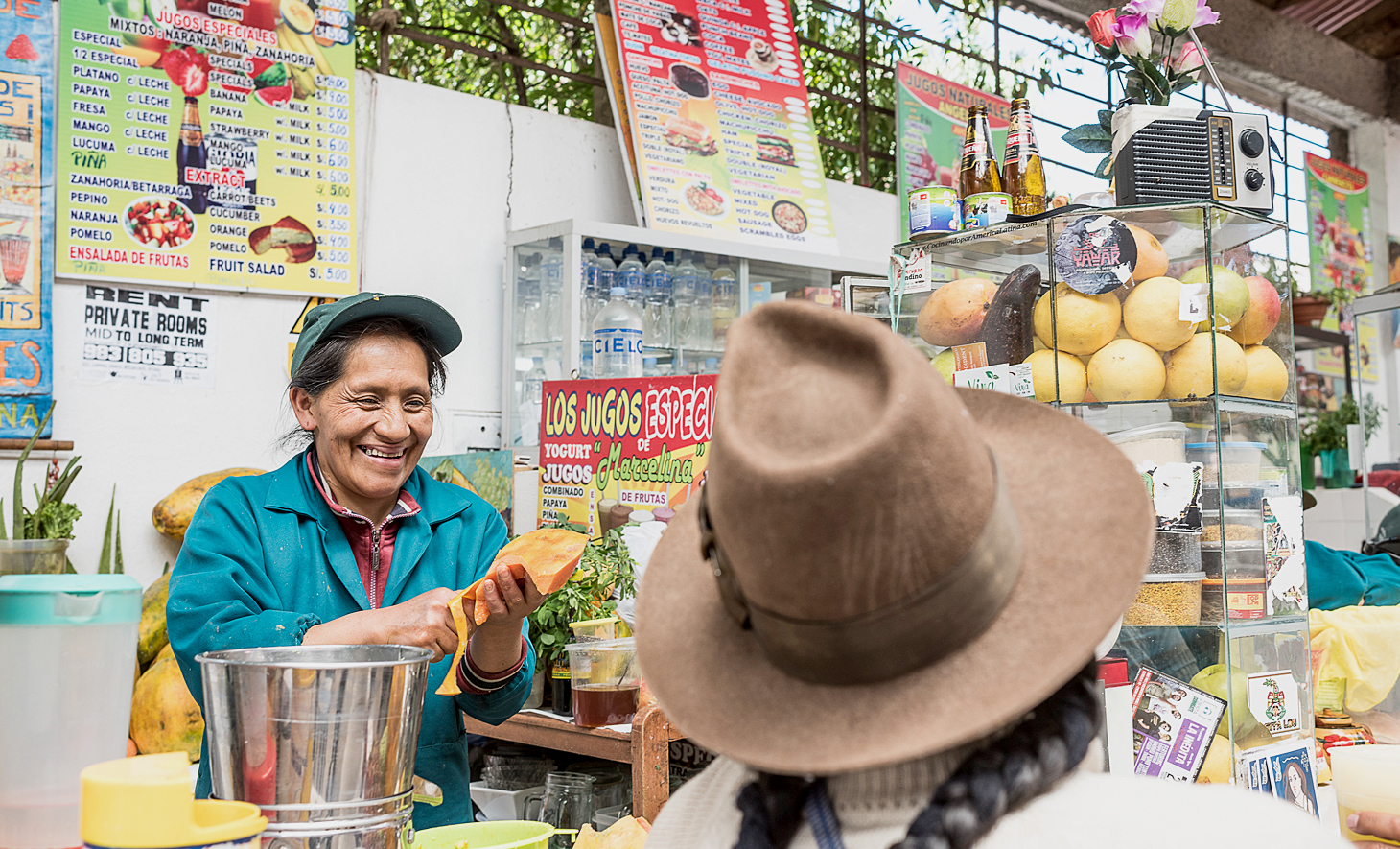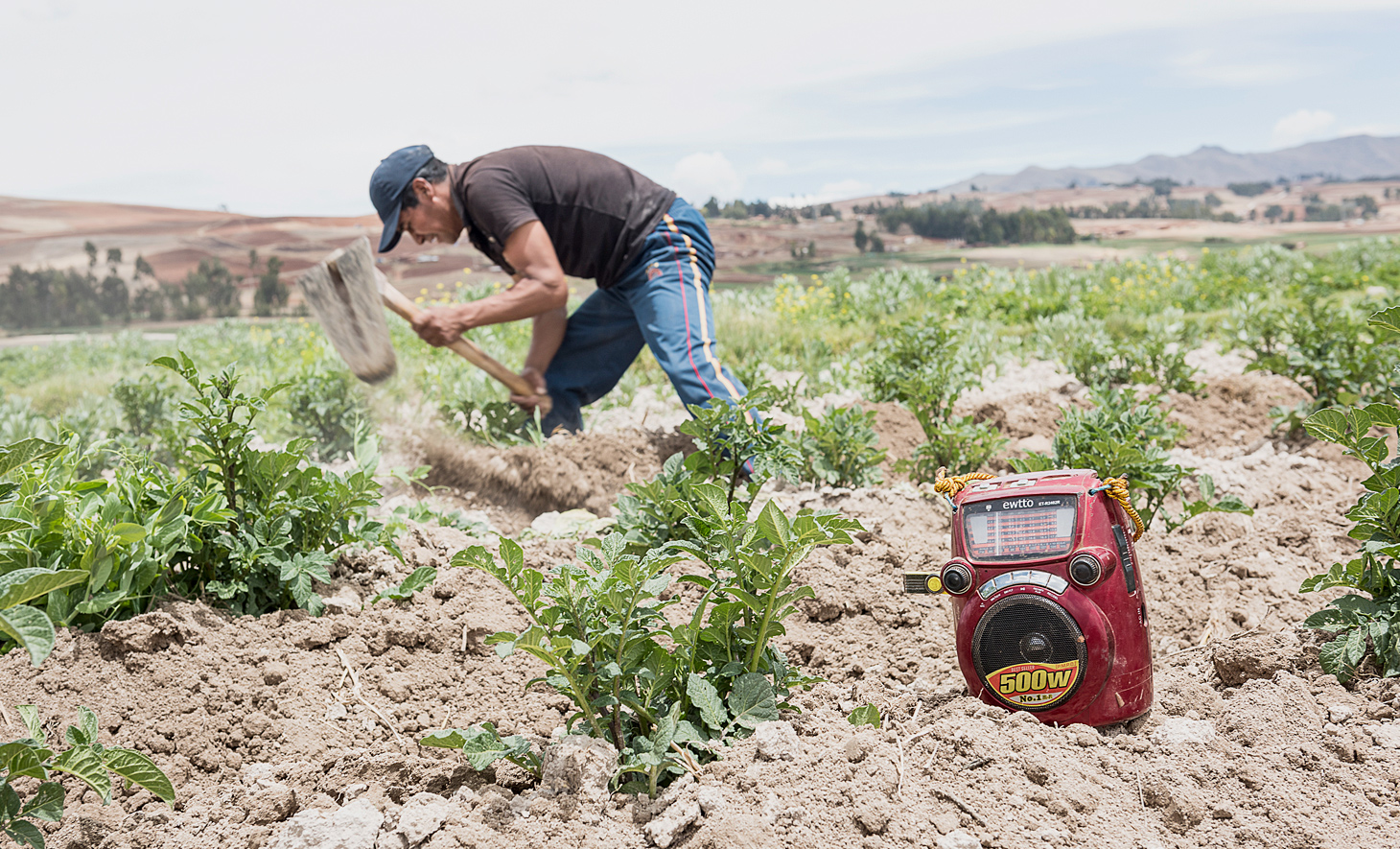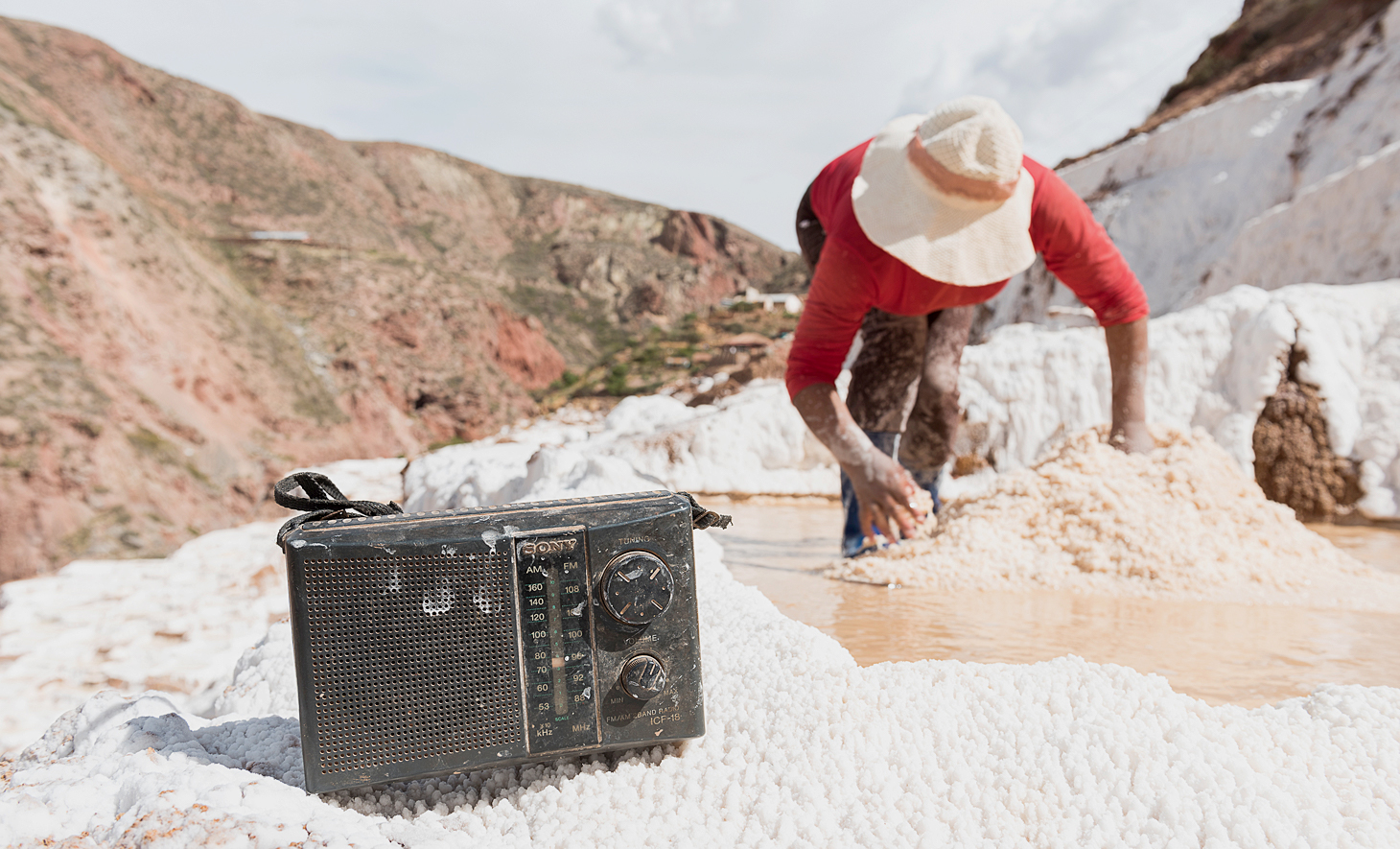
More equal opportunities for indigenous people in Peru
The indigenous population in Peru continues to be severely disadvantaged in terms of access to education and in the education system itself. Our two partner organisations in Peru (Pukllasunchis in Cusco and FENAMAD in Puerto Maldonado) are committed to providing indigenous children and young people with better opportunities for their future. This involves providing concrete support for individual educational pathways as well as improving intercultural teaching.
Pukllasunchis works with indigenous schoolchildren and teachers at rural schools in the Cusco region. The children tell stories about their everyday lives and traditions, which are recorded and broadcast as radio programmes. These radio programmes reach many listeners in the region, for example at the market in Cusco. The teachers themselves undergo further training at Pukllasunchis in bilingual and intercultural teaching.
FENAMAD supports indigenous young people from the Amazon region in secondary school and with further studies in the city by providing accommodation, educational and psychological support as well as strengthening their self-confidence and personal skills.
Photo report from projects in Peru

At school, the children work together to create the stories for the radio programmes. They tell legends and describe customs and everyday life from their lives in Quechua. For the recording of the radio programmes, they perform these stories as plays. The finished programmes are broadcast and are very popular. Nerio Cruz Mamani: “I like the way my voice sounds on the radio. My mum was very proud when she heard me. Thanks to the radio recordings, I’ve become braver and dare to speak out elsewhere”.

The teachers are proud of their students and how they create the radio programmes. The project strengthens them as a group, gives their indigenous origin a positive meaning and makes them participate more attentively in class and get involved. The classes also listen to stories from other communities together and talk about them. The radio programmes as well as other creative and playful activities are effective methods in bilingual intercultural teaching.

Teachers and Pukllasunchis staff discuss the project work. The project would not work without the commitment and conviction of the teachers. They are the ones who implement and promote bilingual and intercultural teaching. Miluska Hurtado de Mendoza (left): “It’s wonderful when children discover talents and when they realise that their way of life and their everyday lives have a place in school. They gain important experiences and learn skills for their future. It’s very satisfying to accompany them in this process and to learn a lot myself”.

Secondary school students from the indigenous communities in the Madre de Dios region have to go to the city of Puerto Maldonado for further studies. Interested young people can find out about the various training opportunities at the careers fair. Most of them have made an arduous journey of several days. If they decide to study, they have to move away from home and find their way around the city. Thanks to the support of FENAMAD, the move is easier for the young people and their parents.

Indigenous young people from various villages and ethnic groups live and work at Casa Miraflores during their studies. They organise their everyday lives together and are supported by specialists in psychological matters as well as with additional lessons and creative workshops. The young people come to terms with their indigenous identity and their origins and how they would like to shape their future.

Rogelio Rodriguez trained as a teacher for bilingual education in Puerto Maldonado and lived in Casa Miraflores during this time. After completing his studies, he returned to his home village of Santa Teresita, where he teaches Spanish and Yine, his mother tongue, to children from Year 3 to Year 6 at primary school.
